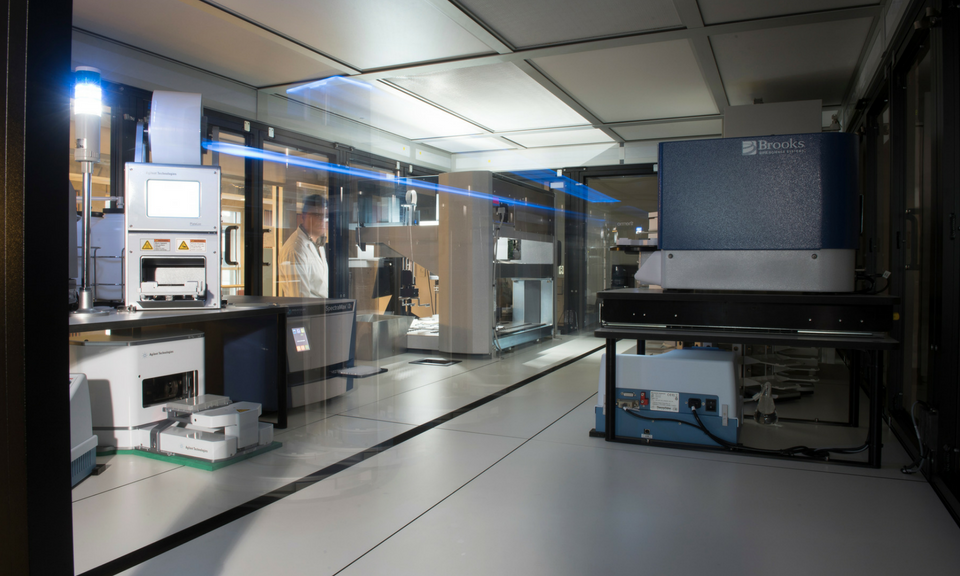New SFU research facility to fast-track understanding and treatment of diseases

Cutting-edge robotic instruments and a robotic arm integrated within a sterile glass chamber are changing chemical biology research at SFU—and could speed up scientific discovery for treating disease.
In the new Centre for High Throughput Chemical Biology (HTCB), which opened at SFU’s Burnaby campus in February, robotics are harnessed to an array of liquid-handling devices and sensitive detectors that are coupled to automated data-processing software. The HTCB will help researchers quickly analyze and test up to 50,000 compounds a day for biological activity—far surpassing what can be done manually.
“Access to high throughput screening instrumentation is changing the face of academic research in the life sciences,” says director Roger Linington. “The tools available at the HTCB will accelerate both basic and applied research projects for all centre users, changing the ways in which we think about scientific problems and opening up new opportunities at the interface of chemistry and biology.”
Co-director David Vocadlo, for example, a professor and Canada Research Chair in Chemical Biology at SFU, leads an interdisciplinary research team developing new chemical tools to better understand how carbohydrates influence cell function, with particular emphasis on their roles in neurodegenerative diseases such as Alzheimer’s and Parkinson’s.
Initiated by Vocadlo, the new 1,300-square-foot facility was made possible through the investment of approximately $2 million by SFU and a range of donors and funders including the Canada Foundation for Innovation, the British Columbia Knowledge Development Fund, research grants and a generous private donation by the Y.P. Heung Foundation. The centre’s main mission is to identify new cellular processes and molecules that can be used by researchers to understand fundamental biology.
Long term, the HTCB could help researchers identify promising molecules that can be tested to pre-clinically validate targets of interest. This could bolster confidence for biotechnology and pharmaceutical companies to fund the expensive clinical trials required to advance drugs based on controlling these targets.
